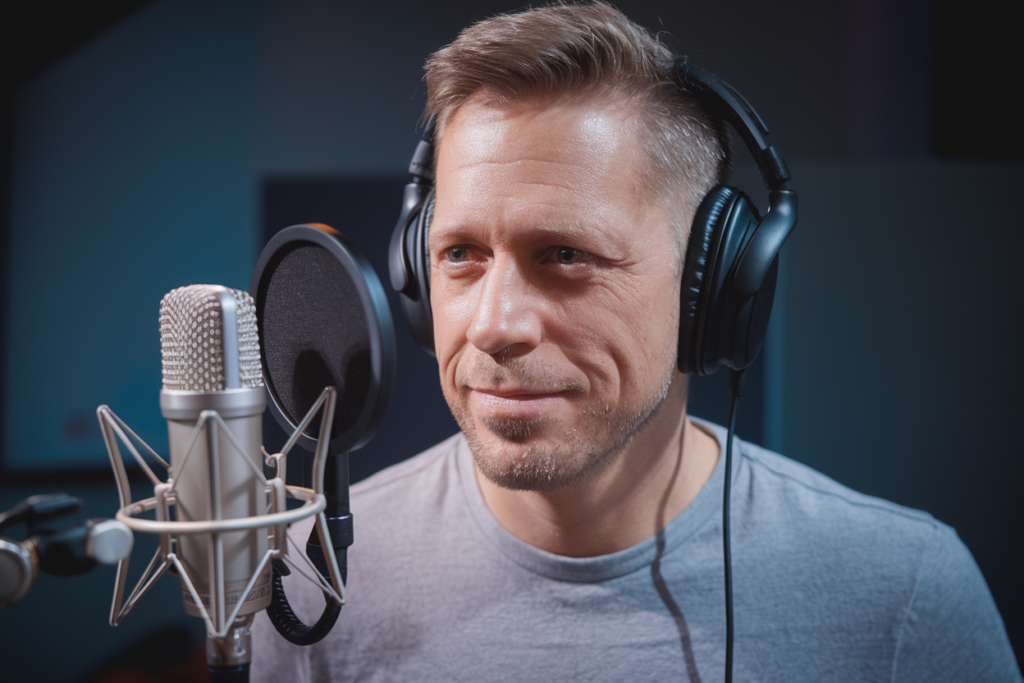Key Takeaways
- Growing Demand for German Subtitles: Many countries, particularly in Europe and beyond, increasingly require German subtitles to enhance accessibility and viewer engagement.
- Cultural Nuances Matter: Effective localization considers cultural references, idiomatic expressions, and regional dialects to ensure that translations resonate authentically with audiences.
- Diverse Applications: Beyond entertainment, industries like education and corporate training also benefit from high-quality German subtitles dubbing to improve communication clarity.
- Importance of Skilled Voice Talent: Engaging professional voice actors is essential for capturing the emotional depth of content while ensuring accurate translations that respect linguistic diversity.
- Challenges in Subtitling: Language nuances and technical limitations can complicate the subtitling process, highlighting the need for skilled professionals who can create immersive viewing experiences.
Ever wondered which countries require German subtitles for dubbing? In our increasingly globalized world, the demand for localized content is skyrocketing. As films and shows cross borders, many nations recognize the importance of making entertainment accessible to their audiences.
But why does this matter to you? If you’re a filmmaker or content creator, understanding these requirements can help you tailor your projects for international markets. It’s not just about translation; it’s about connecting with viewers in a way that resonates deeply. Dive into this article to discover the key players in the realm of German subtitles and how they impact your creative journey.
Overview of German Subtitles Dubbing
German subtitles dubbing plays a crucial role in making content accessible to diverse audiences. Many countries prioritize this localization method to cater to viewers who prefer understanding dialogue without losing the original delivery’s essence. By incorporating German subtitles, creators enhance viewer engagement and comprehension.
Countries like Switzerland, Austria, and Belgium often require German subtitles due to their multilingual populations. Here, the demand for localized content is significant, as it helps bridge communication gaps among different language speakers. These nations emphasize quality voice talent and accurate translations that respect cultural nuances while maintaining the original intent of the material.
The process involves skilled voice actors who lend their talents to create seamless audio experiences alongside visual elements. Often, it’s not just about translating words; it’s about capturing emotions through tone and inflection. A professional voice over artist can make all the difference in how well your content resonates with its audience.
In addition to entertainment sectors like film and television, various industries benefit from German subtitles dubbing too—think educational platforms or corporate training videos. Incorporating effective voiceovers ensures clarity in messaging, which strengthens connections with target audiences.
As you explore options for localizing your content for German-speaking regions, consider investing in high-quality dubbing services that prioritize both accuracy and artistic expression. Engaging experienced voiceover talent guarantees your message shines through clearly while respecting linguistic diversity across borders.
Importance of German Subtitles Dubbing
German subtitles dubbing plays a vital role in connecting content creators with audiences across different regions. It enhances the viewing experience by allowing viewers to engage fully with the material while maintaining the original performance’s emotional depth.
Cultural Relevance
Cultural nuances are essential when localizing content for German-speaking audiences. Accurate translations reflect not only language but also societal values, humor, and references that resonate with viewers. For example, a word-for-word translation might miss the mark entirely if it doesn’t account for regional dialects or cultural context. Employing skilled voice actors who understand these subtleties ensures that the final product feels authentic and relatable. It’s about more than just words; it’s about telling a story that resonates on a personal level.
Accessibility for Diverse Audiences
Accessibility remains crucial in today’s multilingual world. Many viewers prefer watching shows or films in their native language without losing the integrity of the original work. By providing German subtitles dubbing, you cater to those who appreciate understanding dialogue while enjoying high-quality performances from talented voice artists. This approach not only broadens your audience base but also fosters inclusivity among diverse groups, ensuring everyone can enjoy your content comfortably and meaningfully.
Countries Requiring German Subtitles Dubbing
Many countries prioritize German subtitles dubbing to enhance viewer engagement and accessibility. This localization method caters to diverse linguistic preferences, ensuring audiences can enjoy content without losing the original essence.
European Countries
Several European nations require German subtitles dubbing due to their multilingual populations.
- Switzerland: In Switzerland, where four national languages coexist, viewers often prefer content with German subtitles for clarity and cultural relevance.
- Austria: Austria emphasizes the importance of accurate translations in media, reflecting its rich cultural identity and supporting local voice talent.
- Belgium: Belgium’s bilingual nature leads to a demand for quality subtitling in both Dutch and French regions, with many opting for German dubbing as well.
These countries value high-quality voiceovers that resonate with their unique cultural nuances.
Non-European Countries
Some non-European countries also recognize the need for German subtitles dubbing.
- Brazil: In Brazil, a growing interest in German films necessitates localized content with effective translation practices that respect regional dialects.
- Argentina: Argentina showcases an increasing market for foreign films, prompting studios to include German subtitles to cater to local viewers’ preferences.
In these regions, skilled voice artists play a vital role in creating engaging viewing experiences while maintaining the integrity of the original work through careful translation.
Challenges Faced in Subtitling
Subtitling can pose several challenges that impact the effectiveness of localized content. Understanding these obstacles helps you appreciate the complexity behind creating engaging experiences for viewers.
Language Nuances and Localization
Language nuances play a crucial role in subtitling. Each language carries unique expressions, idiomatic phrases, and cultural references that need careful consideration. German, for instance, has various dialects and regional variations that can affect how subtitles are perceived. When localizing content for German-speaking audiences, it’s vital to ensure translations respect these differences while maintaining the original message’s integrity. This effort requires skilled voice actors who understand both languages deeply, enabling them to convey emotions accurately through their performances.
Technical Limitations
Technical limitations also present challenges in subtitling. Timing is essential; subtitles must sync perfectly with on-screen dialogue without disrupting the viewing experience. If subtitles appear too quickly or linger too long, viewers might miss critical moments in the narrative. Additionally, character limits often restrict how much text you can display at once—an issue that demands creativity from translators and voiceover talent alike to capture essential information succinctly without sacrificing clarity or context.
By recognizing these challenges in subtitling, you gain insight into why high-quality localization matters so much. It’s not just about translating words but about creating an immersive experience that resonates with your audience while respecting their linguistic preferences.
Conclusion
Understanding the importance of German subtitles dubbing can significantly enhance your content’s reach and impact. By catering to multilingual audiences in countries like Switzerland, Austria, and Belgium, you foster inclusivity and ensure viewers connect with your work on a deeper level.
Quality translations that respect cultural nuances are essential for creating an authentic experience that resonates with German-speaking audiences. As you navigate the challenges of localization, remember that investing in skilled voice talent and accurate subtitling is key to capturing emotions while maintaining the original essence of your content.
Embrace these practices to broaden your audience base and create engaging viewing experiences that stand out in today’s competitive entertainment landscape.
Frequently Asked Questions
Why is localized content important in the entertainment industry?
Localized content helps filmmakers connect with international audiences by making their work accessible and relatable. It fosters inclusivity, allowing viewers to enjoy films or shows in their native language while preserving the original essence.
What role do German subtitles play in dubbing?
German subtitles enhance the viewing experience by providing clarity and context while maintaining the original dialogue’s delivery. They are crucial for audiences in multilingual countries who prefer understanding spoken words without losing emotional depth.
Which countries prioritize German subtitles for dubbing?
Countries like Switzerland, Austria, and Belgium prioritize German subtitles due to their multilingual populations. Additionally, non-European nations such as Brazil and Argentina are increasingly recognizing the need for these subtitles driven by interest in German films.
What challenges exist in creating effective German subtitles?
Creating effective German subtitles involves addressing language nuances, cultural references, and technical limitations like timing and character limits. These challenges require skilled translators and voice actors to ensure clarity while respecting regional dialects.
How does quality voice talent impact subtitle experiences?
Quality voice talent is essential for capturing emotions through tone and inflection. Skilled voice actors contribute significantly to creating engaging audio experiences that resonate with viewers while accurately conveying the original message of the content.
Why should content creators invest in high-quality dubbing services?
Investing in high-quality dubbing services ensures accurate translations that resonate culturally with audiences. This investment enhances viewer engagement, broadens audience reach, and guarantees that messages are communicated effectively across linguistic borders.







